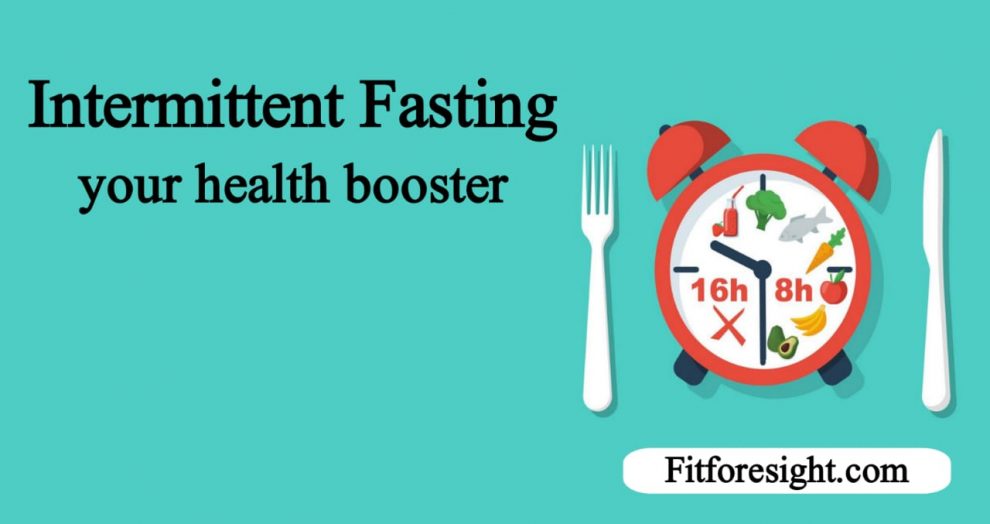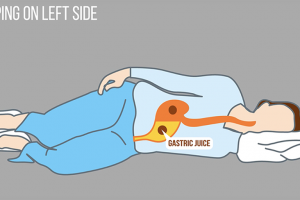Intermittent fasting (IF) is an eating pattern that alternates between periods of fasting and eating. It does not prescribe specific foods to eat but focuses on when you should eat. The primary goal of intermittent fasting is to change the timing of your meals in a way that can have various health benefits. There are several popular methods of intermittent fasting, including:
1. 16/8 Method: This method involves fasting for 16 hours a day and restricting your eating to an 8-hour window. For example, you might eat between 12:00 PM and 8:00 PM and fast from 8:00 PM to 12:00 PM the next day.
2. 5:2 Method: In this approach, you consume your regular diet for five days a week and restrict calorie intake (usually around 500-600 calories) on the other two non-consecutive days.
3. Eat-Stop-Eat: This method involves fasting for a full 24 hours once or twice a week. For example, you might fast from dinner one day to dinner the next day.
4. Alternate-Day Fasting: With this method, you alternate between days of regular eating and days of fasting or consuming very few calories.
5. The Warrior Diet: This diet involves eating small amounts of raw fruits and vegetables during the day and having one large meal in the evening within a 4-hour eating window.
6. OMAD (One Meal a Day): As the name suggests, you eat only one large meal during a 24-hour period and fast for the rest of the day.
Intermittent fasting has gained popularity for several reasons, including its potential health benefits. Some potential benefits include weight loss, improved insulin sensitivity, better blood sugar control, reduced inflammation, and potential longevity benefits. However, it’s important to note that individual results can vary, and not everyone will experience the same benefits.
Before starting an intermittent fasting regimen, it’s essential to consult with a healthcare professional, especially if you have any underlying medical conditions or concerns. It’s also crucial to ensure you maintain a balanced and nutritious diet during your eating windows to meet your nutritional needs. Additionally, hydration is essential during fasting periods.
Intermittent fasting may not be suitable for everyone, and what works best can vary from person to person. It’s important to listen to your body and choose an approach that fits your lifestyle and health goals.
benefits of intermittent fasting
Intermittent fasting (IF) has gained popularity due to its potential health benefits, although it’s important to note that individual results can vary. Here are some of the potential benefits of intermittent fasting:
1. Weight Loss: Intermittent fasting can help with weight loss by creating a calorie deficit. During fasting periods, your body burns stored fat for energy. Additionally, it may reduce overall calorie intake since you have fewer eating opportunities.
2. Improved Insulin Sensitivity: IF can enhance insulin sensitivity, making it easier for your body to regulate blood sugar levels. This can be particularly beneficial for individuals at risk of type 2 diabetes.
3. Better Blood Sugar Control: Intermittent fasting may help lower blood sugar levels and reduce the risk of developing type 2 diabetes by improving insulin sensitivity and reducing insulin resistance.
4. Reduced Inflammation: Some studies suggest that intermittent fasting can reduce markers of inflammation in the body. Chronic inflammation is associated with various diseases, including heart disease and cancer.
5. Cardiovascular Health: IF may improve heart health by reducing risk factors such as high blood pressure, cholesterol levels, and triglycerides.
6. Brain Health: Intermittent fasting may support brain health by promoting the production of brain-derived neurotrophic factor (BDNF), which is associated with cognitive function and reduced risk of neurodegenerative diseases like Alzheimer’s.
7. Autophagy: Fasting can stimulate a cellular process called autophagy, where cells remove damaged components and recycle them. This may have a protective effect against certain diseases.
8. Longevity: Some animal studies suggest that intermittent fasting could extend lifespan, although more research is needed to confirm these effects in humans.
9. Simplicity and Convenience: IF can be relatively simple to follow and may require fewer meals and less meal planning, making it convenient for some people.
10. Psychological Benefits: Some individuals report improved mental clarity, focus, and mood during fasting periods. It may also promote mindfulness about eating habits.
It’s important to remember that while intermittent fasting can offer potential benefits, it’s not a one-size-fits-all approach. Individual results can vary, and what works best may depend on factors such as your lifestyle, health status, and personal preferences. Before starting any fasting regimen, it’s advisable to consult with a healthcare professional, especially if you have underlying medical conditions or concerns about how fasting may affect your health. Additionally, it’s essential to maintain a balanced and nutritious diet during eating windows to meet your nutritional needs.

























Add Comment